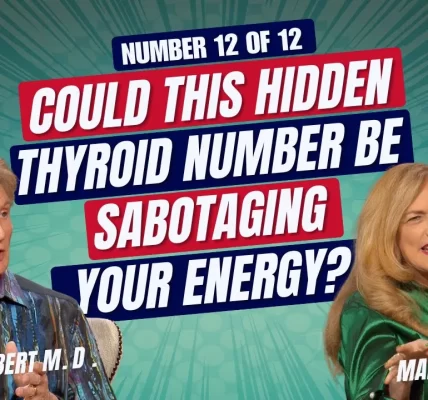Save Your Kidneys with a Low-Protein Keto Approach & Glutathione Support
Maintaining optimal kidney function is essential for overall health—especially if you’ve embraced a ketogenic lifestyle. While traditional keto emphasizes high protein intake, too much can overwork your kidneys and accelerate decline in those prone to chronic kidney disease (CKD). In Episode 5 of Dr. Colbert MD, we explore how a low-protein ketogenic diet, paired with targeted glutathione support, can protect and even improve renal health.
Why the Standard High-Protein Keto May Harm Your Kidneys
-
Excess Nitrogen Waste
Eating large amounts of protein forces your kidneys to filter more nitrogen byproducts (urea). Over time, this added strain can worsen kidney function, especially if you have preexisting renal impairment. -
Increased Glomerular Pressure
High protein loads raise pressure inside the glomeruli—tiny filtration units—leading to “hyperfiltration.” Chronic hyperfiltration speeds up nephron loss, the functional units of your kidneys.
By moderating protein and shifting the macronutrient balance, you can maintain ketosis without taxing your renal system.
The Low-Protein Keto Blueprint
-
Adjust Your Macros
-
Protein: 0.6–0.8 g per kg of ideal body weight
-
Fat: 70–75% of total daily calories
-
Carbs: 5–10% (typically under 30 g net carbs per day)
-
-
Choose High-Quality Sources
-
Proteins: Small portions of pasture-raised poultry, fatty fish, grass-fed dairy and eggs
-
Fats: MCT oil powder, avocado oil, grass-fed butter, olive oil
-
Veggies: Leafy greens and cruciferous vegetables to boost fiber and antioxidants
-
-
Monitor Kidney Markers
-
Get regular blood work (e.g., serum creatinine, BUN) and urine tests (albumin-to-creatinine ratio) to track how your kidneys respond.
-
Work with your healthcare provider to adjust as needed.
-
The Power of Glutathione for Renal Protection
Glutathione is your body’s master antioxidant, crucial for neutralizing free radicals and detoxifying harmful compounds. In the kidneys, it:
-
Reduces Oxidative Stress: Protects renal cells from damage caused by reactive oxygen species (ROS).
-
Supports Detoxification: Aids in removal of heavy metals and metabolic toxins that can accumulate in kidney tissue.
-
Enhances Recovery: Promotes cellular repair after injury or inflammation.
Supplementation Tips:
-
Dosage: 250–500 mg of reduced glutathione daily, or take precursors like N-acetylcysteine (NAC) under your doctor’s guidance.
-
Timing: With meals to improve absorption, or split into morning and evening doses.
-
Formulation: Look for liposomal glutathione for enhanced bioavailability.
Real-World Meal Example
| Meal | Protein | Fat | Net Carbs |
|---|---|---|---|
| Breakfast | 2 eggs | 1 Tbsp MCT oil powder & coffee | 3 g |
| Lunch | 3 oz salmon | Avocado & olive oil dressing | 5 g |
| Snack | Handful macadamias | — | 2 g |
| Dinner | 2 oz chicken | Cauliflower rice sautéed in butter | 6 g |
Total protein remains under 60 g per day for most adults, while fats keep you in deep ketosis.
Actionable Tips for Kidney-Friendly Keto Success
-
Stay Hydrated: Aim for 2–3 L of water daily to help clear urea and support filtration.
-
Test Ketones & Glucose: Use blood meters to ensure you’re in ketosis without overconsuming protein.
-
Incorporate Antioxidant Foods: Berries, bell peppers, and leafy greens add phytonutrients that further protect renal tissue.
-
Work with a Professional: Regular check-ins with a nephrologist or your primary care physician help catch any early changes.
Ready to Protect Your Kidneys?
Adopting a low-protein ketogenic diet alongside targeted glutathione supplementation can be a game-changer for kidney health. Start by recalibrating your macros, choosing clean protein sources, and adding a high-quality glutathione supplement. With regular monitoring and the right support, you can enjoy the benefits of ketosis while safeguarding your most vital filter.
For more detailed meal plans, dosing guidelines, or personalized support, visit Dr. Colbert’s Kidney Health Hub or consult your healthcare provider.
















